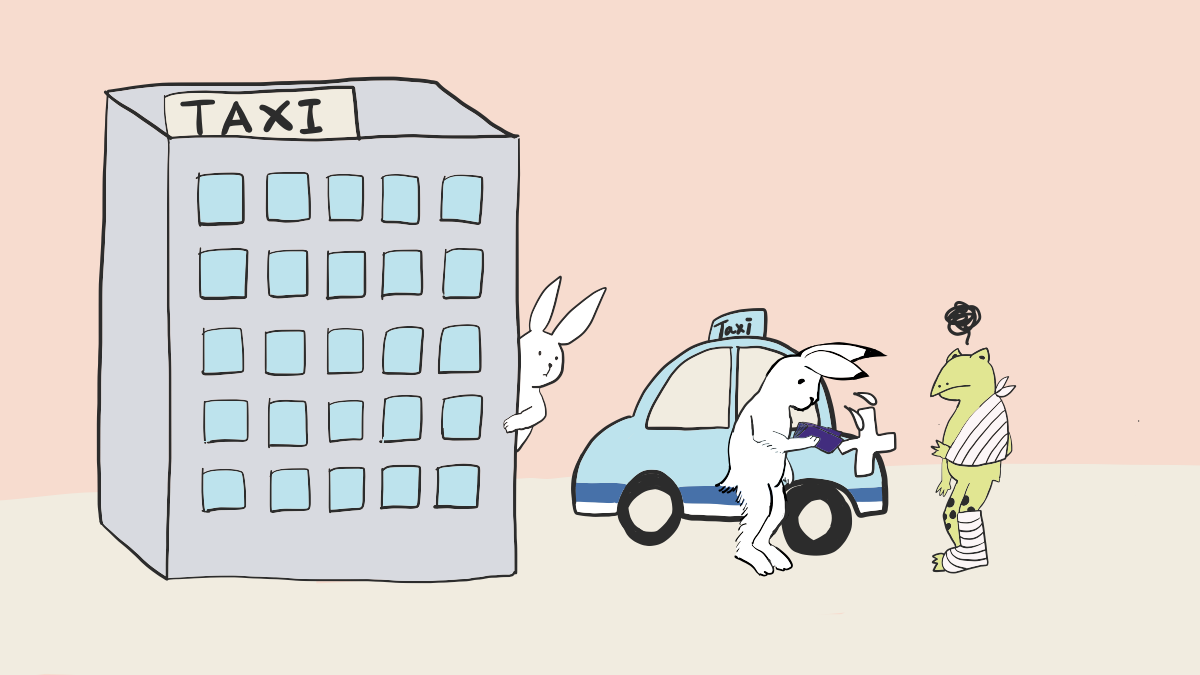
Who can claim compensation in a traffic accident in Japan?
When a traffic accident happens, an at-fault party has to compensate for the damage of the other party. However, specifically who can claim compensation depends on types of accidents.
If a victim is injured and not dead
The victim can claim compensation to the at-fault party
If the victim is under the age of 20, parents (person in parental authority) can claim compensation.
Note that the Japanese Civil Code will be amended in April 2022, and the age of 18 will be newly acknowledged as an adult. So, the above-mentioned age of 20 will be 18 after April 2022.
If a victim is dead
The dead victim's legal heir can claim compensation on behalf of the dead victim. More specifically,
①Spouse and child (including adoptive child.), or grandchildren if the child has died. If the dead victim doesn't have any child or grandchild,
②Spouse and parents (lineal ancestry) If there is no lineal ancestry
③ Spouse and sibling
The legal heirs also have a right to claim consolation money for the death of the victim. Spouses, children, and parents can claim the consolation money.
Who has to pay compensation?
At-fault driver
If you cause a traffic accident and the other party gets damage like injury or death, you have a legal duty to compensate for the loss of the other party. It's supported by the Civil Code Act. 709.
Article 709: A person who has intentionally or negligently infringed any right of others, or legally protected interest of others, shall be liable to compensate any damages resulting in consequence.
Employer
There are cases where the at-fault driver's employer also has a duty to compensate for the damage of the victim. Let's think about the case where you were hit by a taxi. The taxi driver has a legal duty to compensate for your loss. Besides, the employer of the taxi driver also has the same duty. That is supported by the Civil Code Act. 715.
Article 715 (1) A person who employs others for a certain business shall be liable for damages inflicted on a third party by his/her employees with respect to the execution of that business; provided, however, that this shall not apply if the employer exercised reasonable care in appointing the employee or in supervising the business, or if the damages could not have been avoided even if he/she had exercised reasonable care.
Automobile operator
Automobile operator doesn't merely mean "driver," but it means the following:
- User of the car
- Owner of the car
- Lender who rented the car to others
- Company when the employee drove the company's car
- Husband who daily uses the car even if it's owned by his wife
- Rental car owner
- Parents baring the maintenance cost for the car owned by their kids
Only in the case where the traffic accident is human injury traffic accident, automobile operator is also responsible for compensation. Before 1955, only Civil code was applied to determine who should compensate. However, for attending to increasing numbers of traffic accidents then, Act on Securing Compensation for Automobile Accidents was newly introduced in Japan. For protecting traffic accident victims, the Automobile operator also became responsible for compensating for the victim's loss.
Article 3: A person that puts an automobile into operational use for that person's own benefit is liable to compensate for damage arising from the operation of the automobile if this results in the death or bodily injury of another person; provided, however, that this does not apply if the person and the driver prove that they have exercised due care in connection with the operation of the automobile, that the injured party or a third party other than the driver has acted intentionally or negligently, and that there was no defect in automotive structure or function.
Examples
At-fault driver, employer, and automobile operator can be responsible for compensating for damages of traffic accident victims in Japan. However, who is responsible for compensation depends on each case. Let's see examples:
If the owner of the car causes a traffic accident by using the car, and the victim got injured
If the owner of the car causes a traffic accident, Civil Code Act.709 and Act on Securing Compensation for Automobile Accidents Act.3 could be applied to the case. However, if more than two of the law can be applied to one case, newer law is applied. So the latter law is applied to the case.
That means the owner of the car has a legal duty to pay compensation.
If an employee causes property damage traffic accident, driving the company's car
Since this is not a human injury traffic accident, Acton on Securing Compensation for Automobile Accidents is not applied to the case. Civil Code Act.709 and 715 will be applied to the case. That means both employee and employer have a legal duty to compensate for the damage.
A taxi driver causes a human injury traffic accident
Since it is a human injury traffic accident, Act on Securing Compensation for Automobile Accident will be applied to the case. In most of the case, the taxi company compensates for the loss of the victim as an automobile operator. If the property is also damaged, according to the Civil Code Act. 715, the taxi company also has a legal duty to compensate for the damage to the property.
More practically, who is really responsible for compensation depends on the more detailed situations. Whether the driver is in working time, whether the driver has a duty to drive, and so on.